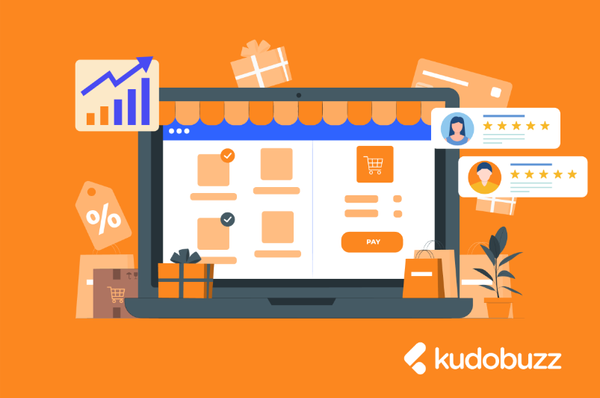Choosing the right eCommerce solution is very important to the success of your eCommerce business. Central in this choice is the selection of the right marketing automation tools.
According to the “2019 State of Marketing Automation Survey Report,” 75 percent of marketers say they currently use at least one type of marketing automation tool.
Not incorporating at least one marketing automation tool in your eCommerce start-up guide means, you might be losing out big time! This is because manually performing every task will require committing more resources into the running of your business. This will not be healthy for your return on investment. Well, it’s not too late to consider using an automation tool.
In this post, I will show you what to consider when choosing a marketing automation tool. Let’s take a quick look at the meaning of marketing automation tools before delving into that.
What is Marketing Automation Tools?
As an eCommerce merchant, you may want to create a feed for your products to enable you list them on multiple shopping platforms or marketplaces such as Facebook, Amazon, Google, Bing, Connexity, etc.
However, manually inputting in-depth product information including product’s weight, size, manufacturer, country of origin, etc of all your products is time-consuming and tedious. In a bid to concentrate on the core aspects of your business like business strategy and product development, you may have to hire some additional employees to help you with this, which would come at a great cost.
Hiring additional hands also comes with its own challenges because human beings are prone to making mistakes and cannot work 24/7 to help you serve your customers in different geographical locations and time zones in a perfect way.
Therefore, there is a dire need for automation of some aspect of your eCommerce business to help you overcome all these hurdles.
Marketing automation tools are software or apps that are designed to help merchants to perform repetitive tasks such as feed creation, sending emails, schedule blogs for posting ahead of time, tracking sales-related data such as shopping cart abandonment, etc.
For the feed creation scenario cited above for instance, merchants can avoid all the pain and struggle of manually creating a feed by using a tool like the Kudobuzz Multichannel app to help them to create product feeds and push them to all marketing platforms or marketplaces in just one click!
You can refer to this blog post on how product feed creation process can impact your business positively.
Things To Consider When Choosing Marketing Automation Tools
Whether you need to schedule blog posts, collect blog comments into a dashboard so you can easily respond to your readers or you just want to manage your inventory, there will always be many tools out there. However, when it comes to picking the right tools for your store, you need to consider a number of things. Here are some tips to guide you through this choice:
It Should Be Easy To Use
The first important factor that you should consider when choosing a marketing automation tool is its ease of use. The ideal automation tool should be easy to install, use and configure. It should come with a complete help guide written in clear simple steps to help merchants to use it without any difficulty. If users have to go through a complex and rigorous process before they can install and use an automation tool, then it’s not worth it.
Again, as a software, it’s natural that your automation tool will from stumble on some difficulty once in a while. When that happens, it should be easy for your engineers to fix such simple bugs without it having a negative impact on your business. If your marketing automation tool is easier to use, you won’t have to bear any additional training expenses.
On the other hand, if the long-term cost of learning to use your marketing automation far outweighs the benefits of its features, chances are your money is not well spent.
It Should Be Responsive To Customization
No two businesses are the same. Therefore, eCommerce software solution made with one business in mind may need to be custom-tailored before it can work perfectly in another business. The marketing automation tool you pick should be flexible and friendly to customization to specific needs and preferences. For example, a software may have columns for “male” and “female” only but a merchant may want to add a third column “unisex”. A good automation tool should enable you to do exactly that.
It Should Be Responsive To Updates
The tech industry keeps evolving. Software companies attempt to improve the marketing automation tools they built on a regular basis to meet the changing times and demands. They do this by adding new features to make an app serve a better function or to enable the tool to serve customers better.
The marketing automation tool you pick should not be static, it should respond to new trends, innovation or change to make it more competitive. In other words, it should typically be able to respond to newer versions of the software when there is an upgrade. This will ensure that you don’t have to purchase a new version as you might with other products.
It Should Be Scalable
Scalability is quite related to the updates discussed above. However, scalability has to do more with the ability of your automation tool to grow with your business.
As a business, you need eCommerce solutions that will help grow and expand your reach. In choosing a marketing automation tool, you need to pick a tool that has the potential to adjust to high numbers or high workload. Simply put, it should have the ability to scale to fit your business’ growing needs. In this way, your automation tool should be able to grow with your business by being able to fit into the ever-evolving needs of your business. By choosing an automation tool that can grow with your business, you’re investing in a product that would last you through many years to come.
It Should Offer Value
Money is a scarce resource and therefore, you need to make sure every penny is well spent. You need to cut out expenses that will not add real value to the growth of your business.
When picking an app or marketing automation tool, compare the cost of the tool with other solutions with similar functions or features. Many marketing automation tools have free options and premium packages. If you intend to perform basic functions, you may just use the free plans without upgrading to paid packages.
Even if it’s a paid tool, you should compare similar automation tools within your industry to ensure value for money for the eCommerce solution you decide on.
It Should Guarantee Data Security
The data security of your own data and that of your customers should be of utmost importance to you. In this era of data mining, you need to make sure every marketing automation tool you pick is compliant with all relevant international data protection regulations, including the European Union’s General Data Protection Regulation (GDPAR) which addresses the export of personal data outside the EU and EEA, etc.
Various jurisdictions have their own data protection laws and therefore, depending on where your business and customers are based, you need to ensure the app will work effectively without any restriction. If your marketing automation tool is data security compliant, it means your personal data and that of your customers are safe. That also guarantees you the authority to sue your software provider in case of data breach.
Many SaaS companies provide enhanced security for only paid premiums. However, they may not tell you other options come with unsecured data or do not have encryption that meets many corporate standards. Therefore, as a merchant, you need to double-check to understand exactly what you’re buying before you commit your money to it.
It Should Guarantee A Stellar Functionality
Before you set out to buy a marketing automation tool, you need to clearly understand exactly the kind of help that you want the automation tool to solve. Even though nearly all companies may have to send emails on a regular basis, you need to dig deep to understand the problem and what kind of solution will be appropriate before you make a pick of a particular tool used for sending emails.
Moreover, merchants need to take their time to read and understand the features or functions of a particular automation tool before they spend their money on it. This knowledge will equip you to consider all aspects of the functionality of an automation tool before investing in it. This is important to ensure the automation tool you pick is compatible with your business. Even if you’re already using an automation tool and want to upgrade, you need to fully understand what’s in store for you when you upgrade or renew your subscription.
It Should Have A Good Customer Support
After you have satisfied yourself and made a pick of an automation tool, you may need a little help from the customer support team from time to time.
Many marketing automation tools developers have a robust customer support system to help merchants whenever they run into any difficulty and need help.
With the complexity of the global business environment and consideration of time differences, you should select an automation tool with the broadest hours and direct phone support in addition to email responses. This way, you can be assured that you’re covered 24/7 whenever you need help.
It Should Have Credibility
In choosing your automation tool, you should do some little background searches to know how the tool is serving its existing customers. That’s where reviews about the tool become important. You should spend some time to read reviews about the product on the company’s web pages, marketing platforms or any other sources. If the tool is serving existing customers right, it will reflect on the sentiments shared by way of the reviews you read.
You need to take note that the reviews need not be all rosy and positive. Sometimes, competitors of a product may intentionally write negative reviews about their competitors' products to make them look bad in the eyes of shoppers. Regardless, if the negative reviews about a product far exceed the positives, chances are the product is not serving value for its users.
Another way of knowing whether or not an automation tool will offer value is when many reputable companies are using it. When you have more of such respectable companies are using a product, it’s a good indicator that the tool is offering real value to users. But in this case, it’s useful to look at companies similar to yours using the product.
It Should Have No Hidden Charges
For some unethical reasons, some owners of automation tools are notorious for deducting some charges at the blind side of users outside the required fees. In picking an automation tool for your eCommerce business, conduct a thorough investigation to ensure you’re not being charged more than you deserve. As mentioned before, read reviews about the automation tool you want to use for your business. Find out what other businesses have to say about the tool. If you’re not convinced, send an email to ask in fine detail about all charges from the automation tool builders. This way, you can take legal action against them when you feel short-changed in the process.
In sum, as an eCommerce merchant, you would want to have the right eCommerce solution to help your business run smoothly. This includes boosting the SEO for your Shopify store, acquiring the right inventory management tools, increasing reviews for your store, and more importantly, acquiring the right marketing automation tools. But your automation tools should provide you value as explained in the points above.
Help us publish content solutions that serve value for your eCommerce business by leaving your views at the comment section below.
Call To Action
If you want to read more content on how to succeed as an e-commerce owner, sign up for our weekly newsletter below to receive resources and tips on how to increase sales and revenue straight into your inbox.








